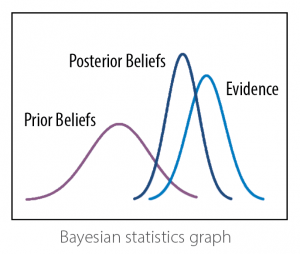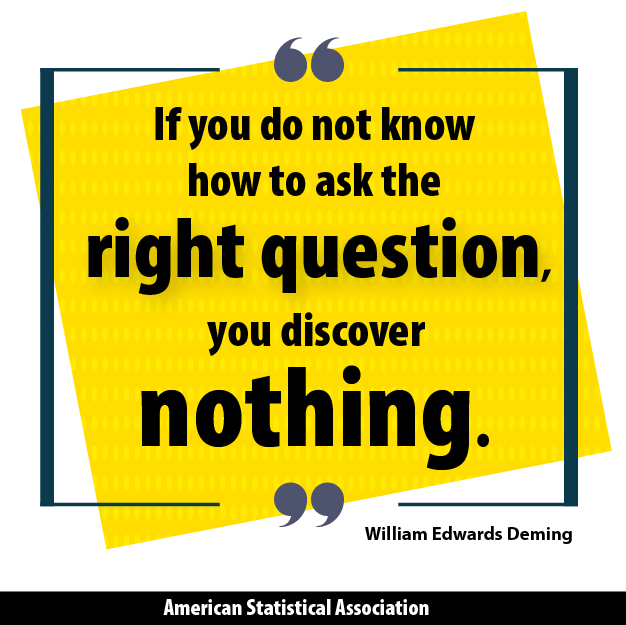 Jeanne Li graduated summa cum laude from Colorado State University with a BS in psychology. After completing her first MA in psychology from the University of California, Santa Barbara, she earned her second MA in statistics and graduated first in her class. She has been working as the research statistician at Santa Barbara Cottage Hospital since 2016, applying her statistical knowledge and collaborating with clinicians and computer scientists in biomedical research.
Jeanne Li graduated summa cum laude from Colorado State University with a BS in psychology. After completing her first MA in psychology from the University of California, Santa Barbara, she earned her second MA in statistics and graduated first in her class. She has been working as the research statistician at Santa Barbara Cottage Hospital since 2016, applying her statistical knowledge and collaborating with clinicians and computer scientists in biomedical research.
As data becomes more readily available and problems are increasingly tackled by data analytics, statisticians and data scientists are becoming ever more essential to our firms. We have the know-how to transform data into actionable insights. But it’s not just our quantitative skills that contribute to our organizations’ success—we are in fact capable of much more than first meets the eye. Our statistical thinking can enhance our job performance and make us exceptional candidates for leadership roles for which we are traditionally overlooked.
Uncertainty
If I had to summarize what statisticians study and practice in one word, I’d say “uncertainty.” We do not just report where the central location of the data is (represented by mean, median, mode, etc.), but the spread of the data (using standard deviation, interquartile range, etc.). We are acutely aware that the world is full of uncertainty, and that’s what makes life so interesting and our profession so valuable.
What we might overlook is that this keen appreciation and understanding of uncertainty transcends the traditional work we perform and prepares us for leadership. We embrace possibilities by maintaining an open mind to alternative viewpoints and solutions. We tend not to speak in absolutes, but rather to evaluate situations based upon multiple factors.
This creates an admirable sense of humility in a statistician, which is a rare and desired quality in leaders. It is important, however, to strike a balance between expressing humility and exuding confidence. This is especially important if you’re in your early career, as you’re still on your way and earning buy-in and trust. Going overboard with humility may put you in an unfavorable position. You might not feel comfortable boasting about your credentials (I know I certainly feel this way), but think of establishing your bona fides as a means to bringing your unique values to collaboration. As you gain latitude, you can telegraph humility more freely.
For instance, statisticians are often accused of saying “it depends” too much. The truth is, more often than not, it does depend. But we can definitely convey our message better by explicitly explaining what we mean by that. One approach is to try to reference a few possible scenarios wherein you’d draw varying conclusions. This would help your audience appreciate your critical thinking skills, as well as the larger message about our field: uncertainty.
Low-Probability Events Do Occur, Albeit at a Low Rate
We understand how randomness works and recognize low probability events do occur, albeit at a low rate. We expect the interval within which the average falls (confidence interval) would be much smaller than the interval within which an individual value falls (prediction interval). Furthermore, we are prepared to encounter observations outside the prediction interval, as they do indeed occur, however infrequently. This knowledge sharpens our ability to evaluate information in perspective and helps us keep a level head when dealing with the unexpected. Tending not to make snap judgments based on isolated occurrences is another crucial quality in leaders, strengthening the argument for statisticians in such positions.
This broad and thoughtful approach to decision-making can help you guide yourself and others through challenging situations. A new coworker of mine once had trouble setting up his personal drive on our computer network. This kind of uncommon, yet serious, workflow interruption can be upsetting for even seasoned employees. My advice to my coworker and anyone else in a similar situation is to understand that these incidents do occur, albeit at a low rate, and that we can mitigate such interruptions with knowledge of probability. Not surprisingly, by taking the appropriate steps, our IT department fixed the issue without much delay.
Bayesian Statistics
I am a big fan of Bayesian statistics; to me, it is so much more than a statistical theory. In simple terms, Bayesian statistics equips people to make use of new evidence to refashion their current beliefs and interpretations. It provides one with a framework for mindful adaptability that can make us better collaborators and strong leaders.
At the very least, we can apply Bayesian thinking to our professional lives in a few important ways. First, we should seek out periodic feedback and be open-minded about implementing it. Frequent feedback coupled with your own evaluation can keep your perspectives up to date and help you make decisions based on the latest information. Next, be willing to acknowledge when you were biased, or even wrong, when presented with strong evidence. Take the opportunity to update your knowledge accordingly. On the other hand, expect that colleagues may be resistant to implementing the critical feedback you provide. The adoption of feedback and actual behavior change takes time, over a series of Bayesian updates; it usually is a gradual process that is rarely completed in a single instance. This kind of calculated humility is precisely the kind of rare but valuable leadership trait that can be unique to statisticians.
When an individual updates their knowledge in the Bayesian style, the new beliefs lie somewhere between their prior beliefs and the evidence they are presented with. Given this spectrum, properly weighing your prior beliefs versus the evidence becomes key. If you’re confident about your prior knowledge, perhaps resultant of large data with little variance, you should assign it considerable weight. Likewise, if the new evidence is substantial and convincing—such as consistent feedback from multiple people—it deserves greater weight.
Granted, it takes experience to reach this level of judgment, but feedback and reflection will help you get there more quickly. The time you spend honing this ability will be well worth it, as it will make you a better statistician and likely a better leader.
Where You Excel
As a student of statistics, you appreciate that outcomes are not certain and that even the rarest of outcomes are possible. With your understanding of Bayesian statistics, you consider new or opposing viewpoints to keep your knowledge current and applicable to your firm’s needs. Though professionals in any sector could reasonably heed the advice presented in this article, you are uniquely armed with the fundamental statistical knowledge to appreciate these strategies, which can align to make you a great leadership candidate.





Leave a Reply